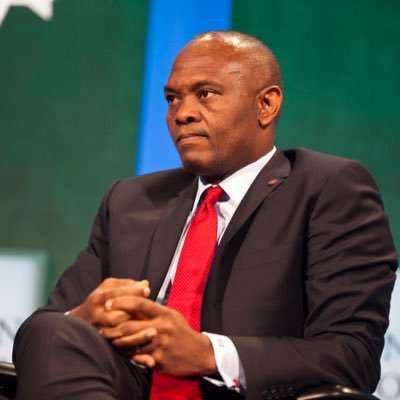By Ayomide Otitoju
Three months ago, I declared an end to COVID-19 as a global health emergency, although I said that it remains a global health threat.
Since then, the number of reported cases, hospitalizations and deaths globally has continued to decline.
However, the number of countries reporting data to WHO has also declined significantly.
In the past month, only 25% of countries and territories have reported COVID-19 deaths to WHO, and only 11% have reported hospitalizations and ICU admissions.
This doesn’t mean that other countries don’t have deaths or hospitalizations, it means they are not reporting them to WHO.
There is no question that the risk of severe disease and death is vastly lower than it was a year ago, thanks to increasing population immunity from vaccination, infection or both, and from early diagnosis with better clinical care.
Despite these improvements, WHO continues to assess the risk of COVID-19 to global public health as high.
The virus continues to circulate in all countries, it continues to kill and it continues to change.
WHO is currently tracking several variants including EG.5, for which we are publishing a risk evaluation today.
The risk remains of a more dangerous variant emerging that could cause a sudden increase in cases and deaths.
When I declared an end to the COVID-19 emergency in May, I announced that I was establishing a review committee to advise me on standing recommendations to support countries to manage COVID-19 in the long-term.
Today, on the advice of the committee, I am issuing standing recommendations for countries in seven major areas.
These recommendations reinforce the advice WHO has provided to countries in its Strategic Preparedness and Response Plan, published in May.
First, all countries should update their national COVID-19 programmes using the WHO Strategic Preparedness and Response Plan, to move towards longer term sustained management of COVID-19.
Second, we urge all countries to sustain collaborative surveillance for COVID-19, to detect significant changes in the virus, as well as trends in disease severity and population immunity.
Third, all countries should report COVID-19 data to WHO or in open sources, especially on death and severe disease, genetic sequences, and data on vaccine effectiveness.
Fourth, all countries should continue to offer COVID-19 vaccination, especially for the most at-risk groups, who are most likely to be hospitalised or to die.
Fifth, all countries should continue to initiate, support, and collaborate on research to generate evidence for COVID-19 prevention and control.
Sixth, all countries should deliver optimal clinical care for COVID-19, including access to proven treatments and measures to protect health workers and caregivers.
And seventh, all countries should continue to work towards ensuring equitable access to safe, effective and quality-assured vaccines, tests and treatments for COVID-19.
We recognise that many people and governments view COVID-19 as a thing of the past.
So why are these recommendations still important?
For those who lost someone they love, for those who continue to be at risk of severe disease or death, for those who continue to suffer from post-COVID-19 condition – for them, COVID-19 is still a daily threat, and a daily trauma.
WHO will not forget about COVID-19, and nor can governments.
Implementing these recommendations will not only help to protect against COVID-19, it will also help countries to prevent and respond to other diseases.
We cannot predict the future, but we can prepare for the future.
The Review Committee is also discussing standing recommendations for mpox, which it will deliver later this week.
It’s important to emphasise that these recommendations do not interfere with the ongoing negotiations on the new pandemic accord or on amendments to the International Health Regulations.
To say more about the committee’s work and its advice, I’m pleased to welcome its Chair, Professor Preben Aavitsland, from the Department of Global Public Health and Primary Health Care at the University of Bergen in Norway.
Professor Aavitsland, thank you for your leadership of the committee and for the strong recommendations you have proposed. You have the floor.
The COVID-19 pandemic has led to millions of cases of severe disease and deaths, and has disrupted healthcare delivery worldwide.
The measures taken to control the pandemic have had significant impacts on economies and the well-being of populations.
As almost everyone on earth now has some immunity against SARS-CoV-2 from vaccination, natural infection, or both, the virus is a much smaller threat to individuals, health care services and societies.
This progress is reflected in the Director-General’s decision three months ago to end the public health emergency of international concern-designation.
The virus, however, will not disappear. In the years to come, many people will suffer from severe COVID-19, mainly people in older age groups.
While suppressing the virus’s spread may no longer be the primary goal, significant efforts can still be made to reduce the overall disease burden caused by COVID-19.
The main approach moving forward involve immunizing those who are most vulnerable to severe outcomes and providing effective treatment for those who become infected.
Repeated infections among low-risk individuals will contribute to maintaining population immunity, although new waves of infection are possible due to waning immunity and evolution of new variants.
Most people, however, remain at small or very small risk of severe COVID-19 disease.
As countries transition from emergency responses to a more normal situation, vigilance, and preparedness for changes in the epidemiological landscape remain essential.
During the public health emergency of international concern, from January 2020 to May 2023, countries’ response efforts were guided by Temporary Recommendations issued under the International Health Regulations.
In the current transitional phase, countries’ preparedness and response actions can be guided by Standing Recommendations, also issued under the International Health Regulations.
The Review Committee was asked by the Director-General to give him technical advice on the contents of Standing Recommendations to member states. As this was the first time in history that such recommendations were to be issued, we were mindful of the importance of our task.
Members of the Review Committee came from all regions of the world, and were appointed to the Committee for their expertise, their independence, and their commitment to global health. I thank them for their work on this report. I am pleased to see that the report was of use to the Director-General.
Dr Tedros resumes:
Thank you, Professor Aavitsland.
Finally, WHO remains highly concerned about the worsening humanitarian situation in Sudan, which is now entering its fourth month of conflict.
More than 40% of the population of Sudan is now in hunger – double the number since May last year.
Limited access to medicines, medical supplies, electricity and water continue to pose a challenge to the delivery of health care in states affected by the conflict in Sudan.
WHO is also concerned about the humanitarian situation caused by the recent conflict in the Amhara region of Ethiopia.
Almost 2 million people are in need of health assistance. The situation is made more complex by the influx of refugees from the conflict in Sudan.
In the three weeks before the conflict erupted, WHO dispatched 35 metric tonnes of supplies, which are enough to reach over half a million people in need.
We have also built a cholera treatment centre in Bahir Dar, but we face severe challenges with access and communications.
The people of Amhara cannot bear another conflict. WHO calls on all parties to the conflict to cease hostilities and return to talks.






